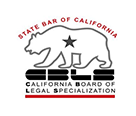California readers may have heard about Donald Trump’s call to end “birthright citizenship” in the United States. However, the important legal case that made birthright citizenship the law of the land nearly 120 years ago may make the Republican presidential candidate’s plan difficult to achieve.
In 1895, 22-year-old Wong Kim Ark, a Chinese American man born in San Francisco, attempted to return to the U.S. after visiting China, but he was denied re-entry. According to historians, there was a very anti-Chinese sentiment coursing through America during this era, but Wong chose to take his citizenship battle all the way to the Supreme Court. On March 28, 1898, the high court sided with Wong, ruling that the portion of the Constitution’s 14th Amendment that deals with birthright citizenship was founded on common law that dictates that those who are born on American soil are American citizens. Birthright citizenship has been considered “settled law” ever since.
Legal experts say that any attempt by Trump or others to amend the Constitution to end birthright citizenship would likely be divisive, protracted and unsuccessful. Meanwhile, immigration experts say that ending the practice would call into question the citizenship of millions of people who were born in the U.S and create two tiers of unequal citizenship that would destroy families and disaffect an entire generation of immigrants.
U.S. immigration laws are complex. California residents with questions about birthright citizenship or any other immigration issue may benefit by consulting with an attorney. Legal counsel could answer all citizenship questions and help those wishing to obtain U.S. citizenship begin the application process.




